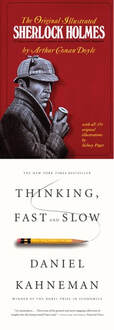
In what sport do the most sudden deaths occur? After a slight pause, to give the audience enough time to come up with an answer but not enough time to deliberate or confer, the presenter said "Golf". This was immediately followed by a burst of low level murmuring amongst the audience. Fionnuala Quigley went on to outline the findings from her British Journal of Sports Medicine article. Forty-five of the 49 coroners she surveyed replied. Fifty-one sudden deaths were reported (of which 50 were male). The median age was 48 (range 15-78). And, golf was the most regular sport. Elementary - as the screen version of Sherlock Holmes might say.
Quigley leveraged our perception of sport as young person's activity. We probably imagined that sudden deaths occurred when athletes pushed themselves too far. Her presentation took place only months after a prominent gaelic footballer died. We probably pictured his outstanding displays in Croke Park rather than the fact that he died in his sleep from an underlying heart condition. It is easy to see how our minds can play tricks on us. Careful thought, debate, the help of an expert, and an examination of the data can set us straight. Holmes always warned against speculation without data.
On the economic front, we should also keep in mind that there more to sport than the high profile elements we see broadcast on our screens. Let us return to golf. A recent report by RTE highlighted the impact of the current virus related restrictions. A representative of Ballybunion Golf Club, one of Tom Watson's favourites, pointed out that they would have taken €3m in green fees in 2020 and another €0.5m in the shop. A sizeable proportion of that will now not materialise. The economics of sport includes situations where individuals pay-to-play as well as those who are paid-for-play.
 RSS Feed
RSS Feed